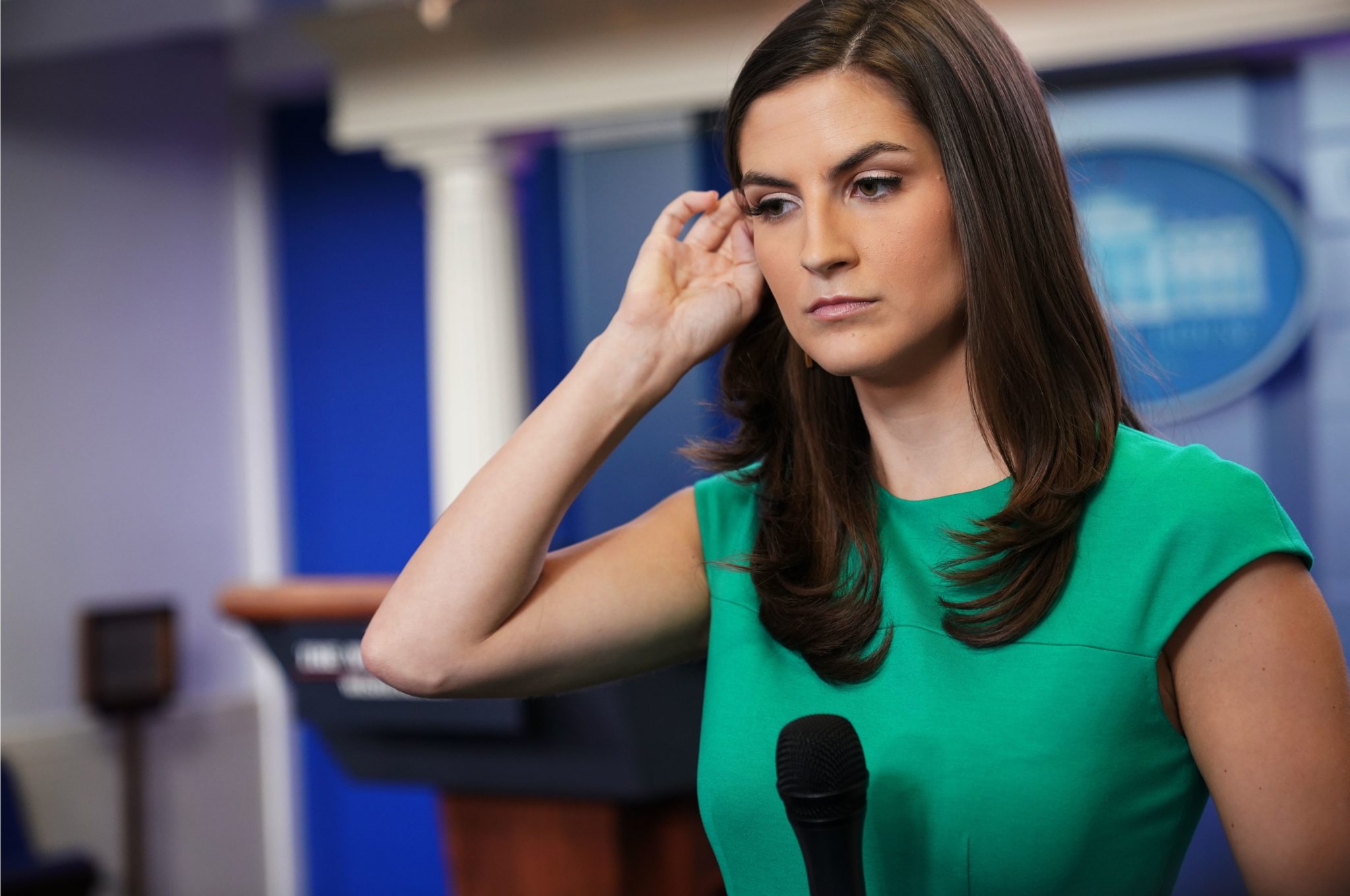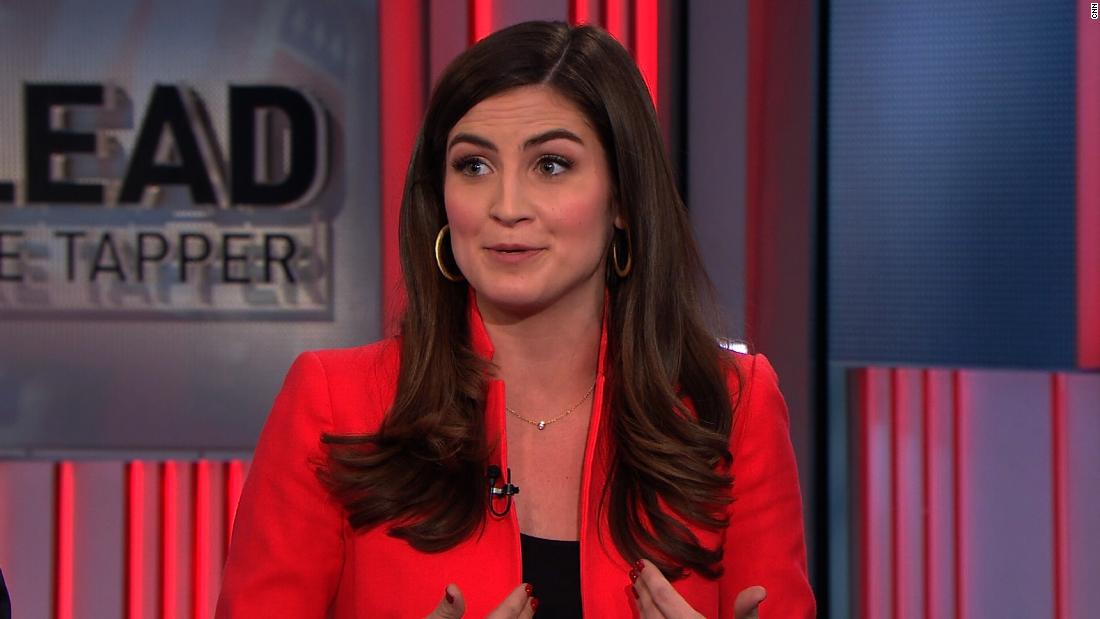Kaitlan Collins: Understanding Her Journey And Identity
Kaitlan Collins is a prominent figure in American journalism, recognized for her work as a White House correspondent and her insightful commentary on political affairs. Her career has sparked conversations about various topics, including the importance of representation and identity in media. As a public figure, she has been the subject of much discussion, with many curious about her personal life and how it intersects with her professional endeavors. In recent years, the conversation has increasingly included discussions around the topic of gender identity, leading to questions about Kaitlan Collins transgender status and experiences.
As society becomes more aware of the complexities surrounding gender identity, individuals like Kaitlan Collins have found themselves at the center of these discussions. People are eager to understand not only her professional achievements but also how her identity shapes her perspective as a journalist. The intersection of media and personal identity is a crucial topic, especially when it comes to representation in journalism, which often influences public perception and understanding of diverse communities.
In this article, we will delve deeper into Kaitlan Collins' background, her career trajectory, and the conversations surrounding her identity. By exploring these elements, we aim to shed light on the broader implications of representation in media and how it affects the narrative surrounding individuals in the public eye. As we navigate through these discussions, we will address the question: Is Kaitlan Collins transgender? Let's explore this topic further.
- Unraveling The Mystery Did Molly Noblit Die
- Noblitt Bully Unraveling The Mystery Of A Controversial Figure
Who is Kaitlan Collins?
Kaitlan Collins is an American journalist who has gained prominence through her coverage of significant political events. She was born on April 7, 1992, in Prattville, Alabama. Collins graduated from the University of Alabama in 2014 with a degree in political science and began her career in journalism shortly thereafter.
Kaitlan Collins' Biography
| Personal Details | Information |
|---|---|
| Name | Kaitlan Collins |
| Birth Date | April 7, 1992 |
| Birth Place | Prattville, Alabama, USA |
| Education | University of Alabama (Bachelor's in Political Science) |
| Occupation | Journalist |
| Notable Work | White House Correspondent for CNN |
What Has Kaitlan Collins Accomplished in Her Career?
Throughout her career, Kaitlan Collins has made significant contributions to political journalism. She began her career at The Daily Caller, where she quickly gained recognition for her ability to cover breaking news and political events. In 2017, Collins joined CNN, where she became a White House correspondent, covering the Trump administration and its policies.
During her tenure, she has reported on critical issues ranging from immigration policy to the COVID-19 pandemic, often asking tough questions that challenge the narratives presented by political leaders. Her work has earned her respect and recognition among her peers, solidifying her position as a leading voice in political reporting.
- Discovering The World Of Mkvmoviespoint 2021 A Comprehensive Guide
- Mkv Moviespoint Your Ultimate Destination For Highquality Movie Downloads
Is Kaitlan Collins Transgender?
The question of Kaitlan Collins' gender identity has surfaced in various discussions, particularly regarding her representation in the media. While some individuals have speculated about her being transgender, it is crucial to rely on verified information and respect her privacy. As of now, there is no public confirmation or credible evidence to suggest that Kaitlan Collins identifies as transgender.
How Does Gender Identity Impact Journalism?
The topic of gender identity in journalism is multifaceted and essential for understanding representation in media. The portrayal of individuals from diverse backgrounds can significantly affect public perception and the narratives surrounding various communities. Journalists, particularly those in positions like Collins, have the power to shape conversations about identity and representation through their work.
By covering stories that highlight issues faced by marginalized groups, journalists can foster greater understanding and empathy among audiences. The representation of transgender individuals in media is particularly important, as it can help combat stereotypes and promote acceptance.
What Can We Learn from Kaitlan Collins' Work?
Kaitlan Collins' journey as a journalist offers valuable insights into the importance of representation and authenticity in media. Her ability to navigate challenging political landscapes while maintaining her integrity exemplifies how journalists can address complex issues with sensitivity and care. By engaging with diverse perspectives, Collins encourages conversations around identity, policy, and representation, ultimately enriching the discourse in political journalism.
What Role Does Media Play in Shaping Perceptions of Gender Identity?
The media plays a crucial role in shaping how gender identity is perceived and understood in society. Through the coverage of stories related to transgender individuals and issues, journalists can influence public opinion and foster acceptance. By featuring diverse voices and experiences, media can help normalize conversations around gender identity, allowing individuals to feel seen and understood.
How Can We Support Diverse Representation in Journalism?
Supporting diverse representation in journalism is vital for a well-rounded understanding of society. Here are several ways to promote inclusivity in media:
- Encouraging news outlets to hire diverse reporters and correspondents.
- Promoting stories that highlight the experiences of marginalized communities.
- Supporting media organizations that prioritize representation and inclusivity.
- Engaging in conversations about the importance of representation in journalism.
In Conclusion: The Importance of Understanding Kaitlan Collins' Journey
As we explore the topic of Kaitlan Collins transgender discussions, it is essential to approach the subject with sensitivity and respect for her privacy. While there may be curiosity surrounding her identity, it is crucial to focus on her significant contributions to journalism and the broader conversations about representation and diversity in media.
Kaitlan Collins serves as a reminder of the importance of diverse perspectives in journalism and the impact that representation can have on societal understanding. By advocating for inclusivity and engaging in meaningful conversations, we can work towards a more equitable media landscape that reflects the rich tapestry of human experiences.
Article Recommendations
- Unveiling The Mystery Who Is Mellstroy Married To
- Discover The Ultimate Mkv Hd Movies Hub For Movie Enthusiasts



Detail Author:
- Name : Tanya Schmeler
- Username : nona76
- Email : deckow.lenna@jacobs.com
- Birthdate : 1991-04-13
- Address : 9599 Rutherford Lock Suite 355 Schimmelside, CA 45747-4752
- Phone : 951-787-5517
- Company : Abbott PLC
- Job : Shipping and Receiving Clerk
- Bio : Blanditiis magni sit nam repellendus et. Consequuntur assumenda ex aspernatur id deserunt. Aut id reiciendis quidem veniam. Commodi modi ipsam explicabo et accusantium. Commodi minus odit ea eum.
Socials
linkedin:
- url : https://linkedin.com/in/gustave6048
- username : gustave6048
- bio : Ea quas est facilis earum.
- followers : 2825
- following : 1850
facebook:
- url : https://facebook.com/go'conner
- username : go'conner
- bio : Ut minus ea numquam eum.
- followers : 6546
- following : 1807
twitter:
- url : https://twitter.com/gustave.o'conner
- username : gustave.o'conner
- bio : Porro perferendis enim fugit occaecati eum repudiandae. Vel reprehenderit labore fuga et.
- followers : 3730
- following : 988
tiktok:
- url : https://tiktok.com/@gustaveo'conner
- username : gustaveo'conner
- bio : Dolor cum omnis animi est. Rem itaque culpa magnam aliquam aspernatur nemo.
- followers : 6341
- following : 633
instagram:
- url : https://instagram.com/gustave_official
- username : gustave_official
- bio : Eius dolor est aut iusto officiis. Commodi neque labore dolorum aperiam molestiae.
- followers : 6193
- following : 1526